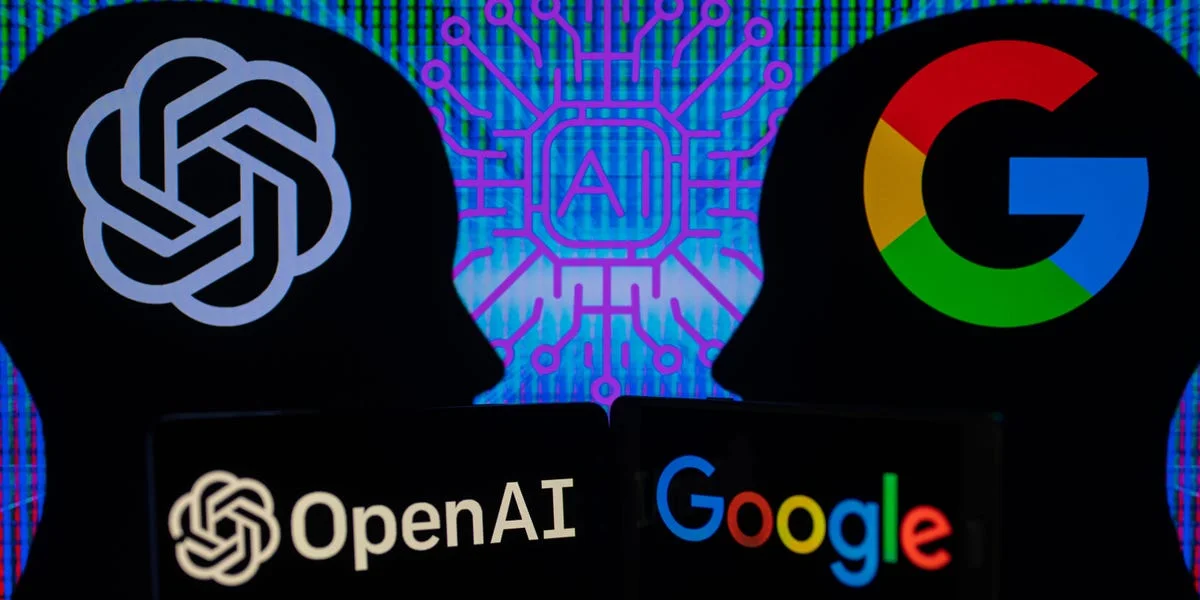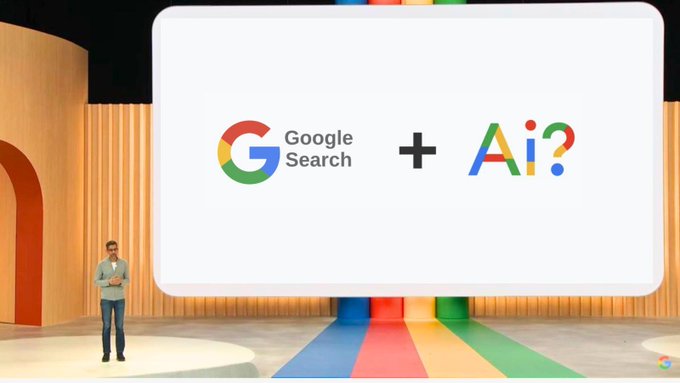There’s a rumble in the internet jungle! Recent reports suggest Google might be shaking up its business model by charging for certain AI-powered searches. This would be a major shift, as Google search has always been a free and open resource. But what’s driving this potential change, and what are the implications?
Generative AI Google: A New Era of Information Discovery

While traditional search engines excel at finding relevant web pages based on keywords, they often struggle to grasp the true intent behind a search query. This can lead to information overload and irrelevant results. AI search, on the other hand, promises a transformative experience, ushering in a new era of information discovery.
Understanding Context and Intent:
Imagine a search engine that can not only identify keywords but also understand the deeper meaning and context of your question. AI-powered search can analyze the surrounding text, your search history, and even your location to decipher the true intent behind your query.
For instance, searching for “Renaissance art” might return different results for an art student compared to a casual history buff.
Beyond Simple Links: A World of Information at Your Fingertips
AI search goes beyond simply delivering a list of web pages. It can act as a powerful information concierge, dynamically generating a variety of tailored responses:
- Structured Responses: AI can synthesize information from various sources to create informative summaries or answer your questions directly in a clear and concise manner.
- Creative Text Formats: Need inspiration for a poem or a catchy slogan? AI can generate creative text formats based on your input and desired style.
- Code Generation: Stuck on a coding problem? AI can analyze your code and suggest potential solutions or even complete specific code snippets based on your requirements.
- Visualizations and Data Analysis: AI can transform complex data sets into easy-to-understand charts, graphs, or other visual formats, making it easier to grasp trends and insights.
Personalized Learning and Research Assistant:
AI search can personalize your search experience to your individual needs and preferences. Imagine a search engine that tailors results to your learning style, recommending additional resources or study guides based on how you typically consume information.
For research projects, AI can become an invaluable assistant, curating relevant scholarly articles, highlighting key findings, and even suggesting new research avenues to explore.
The Potential for Deeper Understanding and Knowledge Creation:
By providing a more nuanced understanding of search queries and delivering a wider range of information formats, AI search has the potential to revolutionize how we learn and create knowledge.
It can empower users to delve deeper into topics, connect seemingly disparate pieces of information, and foster a more holistic understanding of the world around them. This can lead to groundbreaking discoveries, innovative solutions, and a new era of knowledge creation fueled by intelligent search technology.
The Price of Progress?
The potential of AI search is undeniable. But as with any powerful technology, there’s a price tag attached. Developing and maintaining these complex systems requires significant resources. Here’s a deeper dive into the potential motivations behind Google potentially charging for AI search:
- Recovering Development Costs: Building and maintaining cutting-edge AI requires a massive investment in infrastructure, data acquisition, and a highly skilled workforce. Charging for AI search could be a way for Google to recoup these costs and ensure they can continue pushing the boundaries of search technology.
- Funding Continued Innovation: AI is a rapidly evolving field. By charging for premium features, Google could generate revenue specifically dedicated to further research and development. This could fuel advancements in AI search capabilities, benefiting everyone in the long run.
- Differentiating in the AI Race: The competition in the AI space is fierce. A premium AI search offering could be a way for Google to differentiate itself from competitors, attracting users who value cutting-edge search functionalities. It could become a selling point for businesses and research institutions seeking the most advanced information retrieval tools.
However, there are also potential drawbacks to consider:
- Widening the Knowledge Gap: Free access to information is a cornerstone of the internet. If advanced AI search features come at a cost, it could create a two-tiered system, disadvantaging those who can’t afford to pay. Students, researchers, and individuals in developing countries might be particularly impacted.
- Paywall : The ability to truly understand complex topics could become a pay-to-play scenario. This could hinder the free flow of knowledge and stifle innovation that might otherwise emerge from diverse perspectives.
Ultimately, the decision of whether to charge for AI search is a complex one. Google needs to carefully weigh the potential benefits against the risks of exacerbating digital inequality.
A Two-Tiered Search System?
Reports suggest a possible two-tiered system: free basic search and a paid tier with advanced AI functionalities. This could raise concerns about digital equity.
Free access to information is a cornerstone of the internet, and charging for advanced search could widen the knowledge gap. Students, researchers, and those in developing countries might be particularly disadvantaged.
The Future of Search
Whether Google implements paid AI search remains to be seen. The company is likely gauging user response and weighing the potential benefits against the risks. Here are some alternative solutions to consider:
- Freemium Model: Offer a limited set of AI-powered search features for free, with premium options available for a fee. This could strike a balance between innovation and accessibility.
- Targeted Advertising: Integrate targeted ads within AI search results, ensuring they are relevant and unobtrusive. This could generate revenue without directly charging users.
- Partnerships and Grants: Collaborate with educational institutions and research organizations to provide free or subsidized access to AI search for specific purposes.
One thing’s for sure: the way we search the web is evolving, and AI is at the forefront of this change. It’ll be interesting to see how Google and other search engines navigate this new frontier while keeping information accessible and fostering a more equitable digital landscape.
The future of search should be about empowering everyone, not just those who can afford to pay.
Please share your thoughts in the comments. At theproductrecap.com, we are open to friendly suggestions and helpful inputs to keep awareness at peak.






